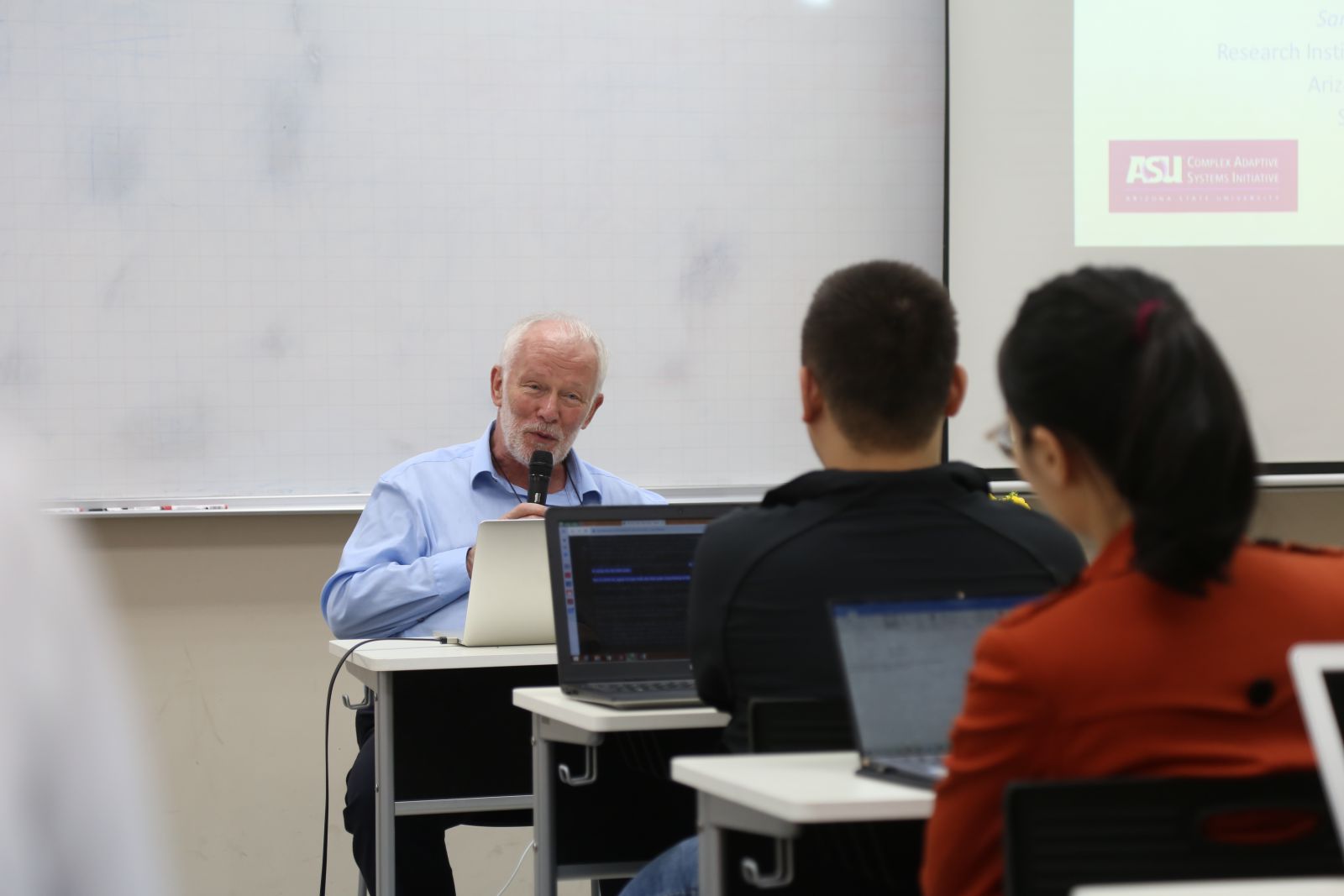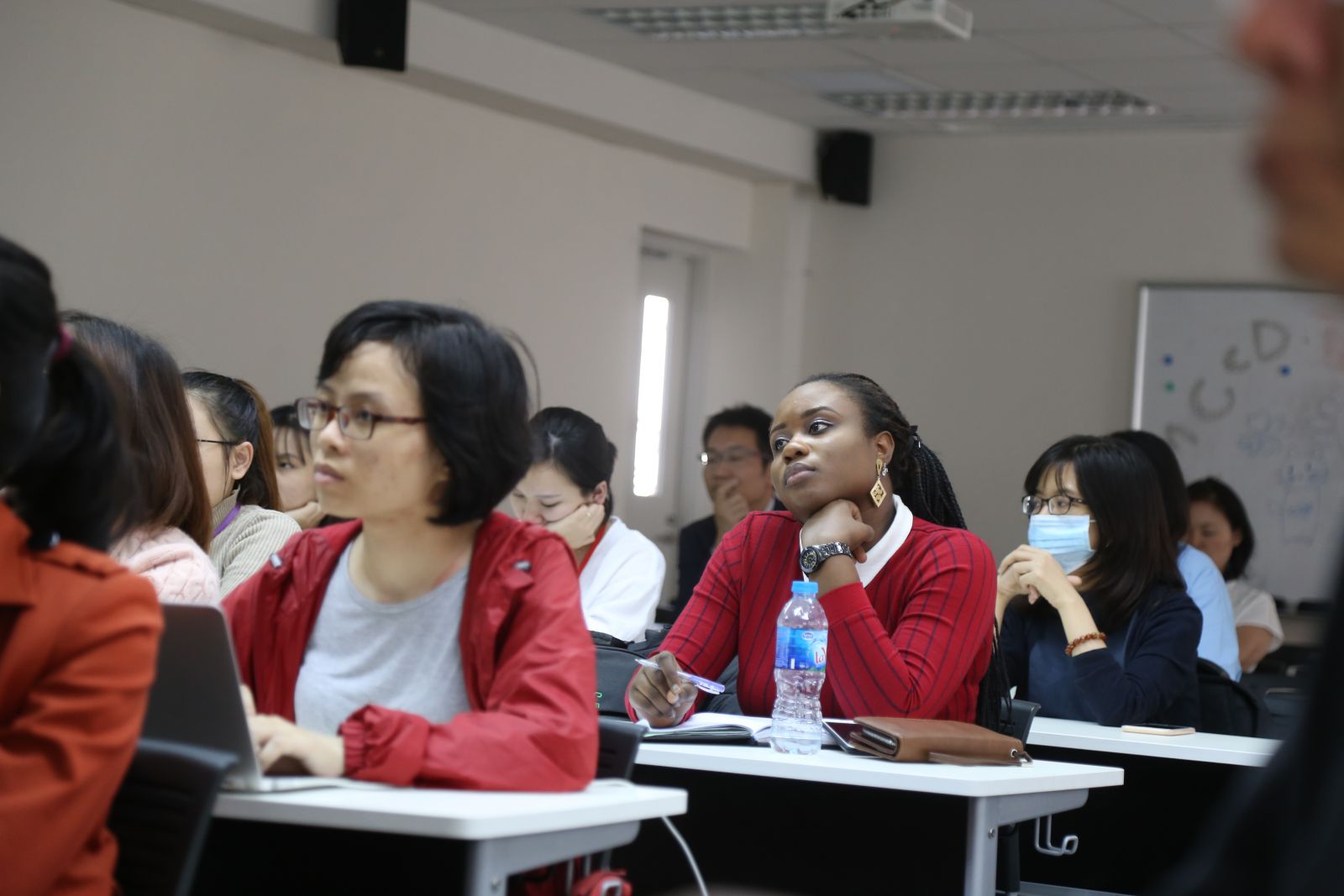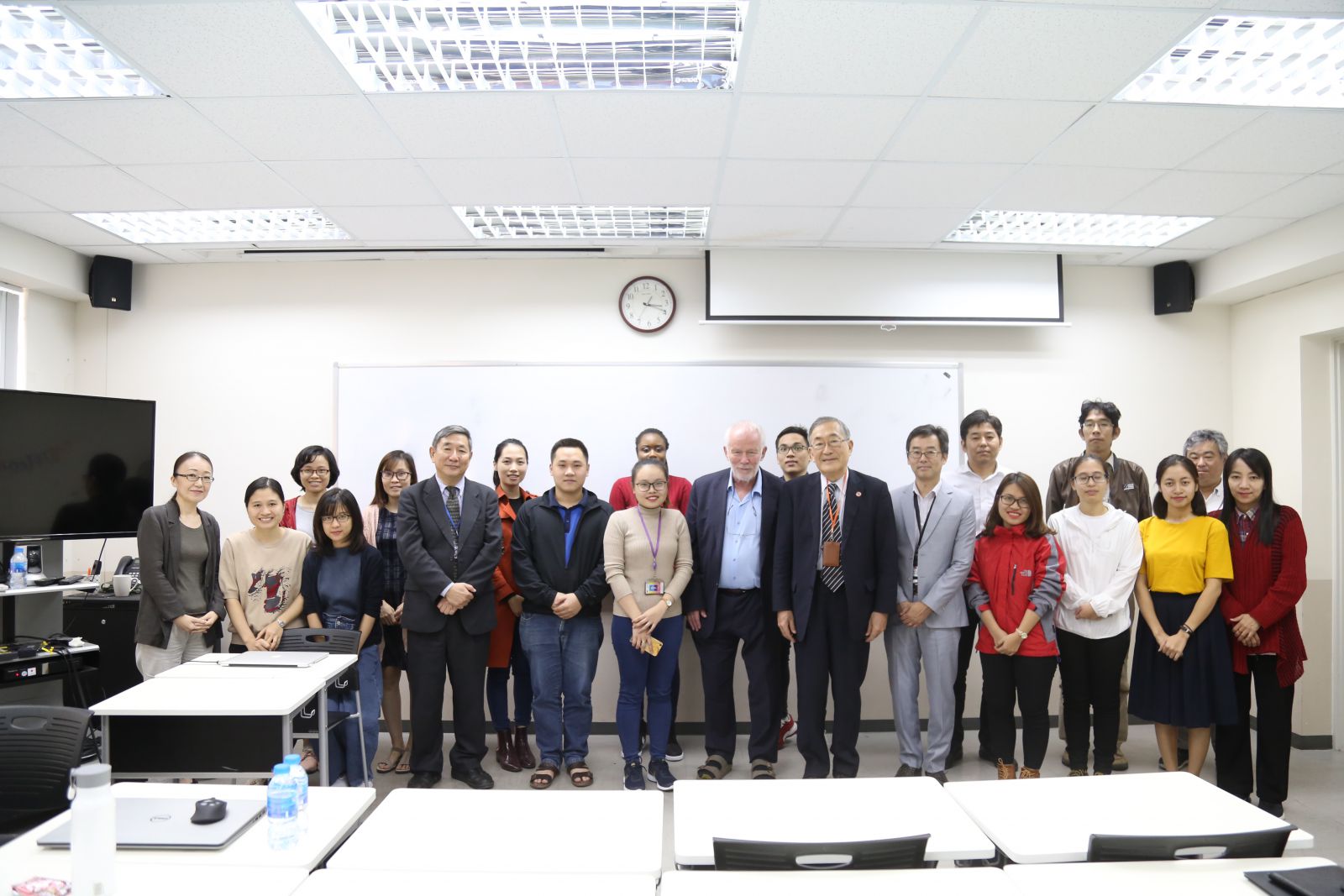On November 21, Prof. Sander van der Leeuw, Dean, School of Sustainability, Arizona State University lectured the topic “Solutions Cause Problems: Lessons from Water Management in the Rhine Delta, the Netherlands”. This is the second seminar in a series of ISS Seminar, from the Institute of Sustainability Science (ISS), VNU Vietnam – Japan University (VJU)
Prof. Sander van der Leeuw
In the seminar, Prof. Sander van der Leeuw demonstrated an example from a Dutch case of water management. He focused on three main topics of the essential viewing of the whole system, the evolution of “system science”, and the complex systems science.
He stated that though we live in a very complex system, our perception of that system has been extremely limited. Therefore, we need an approach to understanding the relationship of the past, present, and the future for the sustainability.
During the socio-environmental coevolution, the civilization occurred, so did the conflict between human beings activities and the environment. He took an example of the cultivation of the Dutch people in Rhine Delta to demonstrate the very first sign that when people cultivate their crops, they had to drain the peat, and at the same time, increased the risk of inundations.
By the example from Holland, a lesson was raised about the innovation and risk. The innovation is no longer energy – constrained and now is supply – driven rather than demand – driven. The faster the society innovates, the faster its knowledge becomes obsolete. Society cannot keep up with the unintended consequences and the consequent rapid shift in risk spectrum.
The professor stated that designing for change is essential. He also advised we should learn from Japan and their resilient community building. Japan’s exposure to natural disasters has prompted the country to develop technology and methods that mitigate mother nature’s human and economic damage.
Prof. Sander van der Leeuw‘s current research interests are in the development of Global Systems Science, the study of the relationship between sustainability and innovation, the long-term evolution of human information processing and the application of transdisciplinarity to research.




